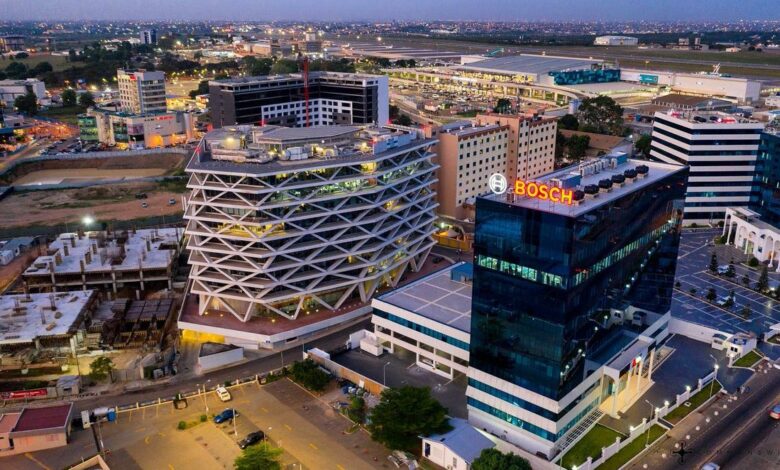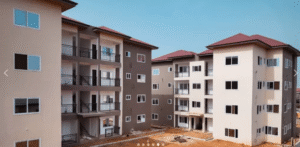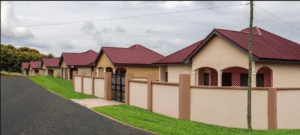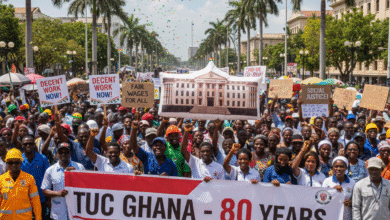Unlocking Affordable Housing in Ghana: The Case for Stronger State Intervention

By Eric Eduam
Navigating the challenges of finding affordable accommodations in Ghana can be daunting. With rising housing costs and limited availability, securing a place to live that is both affordable and comfortable is becoming increasingly difficult. This post explores the state’s critical role in addressing this issue. From policy interventions to affordable housing initiatives, we delve into how government actions can make a significant difference in easing the accommodation crisis for Ghanaians. Join the conversation and share your thoughts on how we can work together to create sustainable housing solutions.
What has the state been doing?
Ghana’s government has addressed housing issues through several programmes. In the 1960s and the 1970s, the State Housing Corporation and the Tema Development Corporation were part of the government’s initiatives to address housing challenges by providing affordable housing. However, these schemes face financial issues and have limited housing accessibility.
The first housing program in Ghana post-independence was the Roof Loan Scheme, which encouraged private home ownership and government-provided housing on serviced land with power and water mains. However, due to population expansion and limited funds, the government cannot meet all future housing needs. Nevertheless, the changing socioeconomic situation has influenced Ghana’s housing policy.

The government has established the National Housing and Mortgage Fund (NHMF) as part of its efforts to reinvigorate affordable housing. According to NMS, mortgages have been evaluated and approved at interest rates ranging from 10% to 12%. Affordable Housing REITs are rent-to-own programs in which occupants make monthly rent payments and have the opportunity to eventually buy the property, eliminating the need for the traditional two-year rent advance method.
In 2022, the government implemented a new cost-effective housing initiative that included the allocation of land, infrastructure services, and tax incentives and exemptions. These measures aimed to subsidise the expenses associated with constructing housing units, ultimately leading to a reduction in their pricing. In addition, the government has entered public-private partnerships to provide infrastructure and services.
Nevertheless, these initiatives have been impeded by inadequate financial resources, ineffective land administration systems, and corruption.
How have state policies fared?
The implementation of state interventions in Ghana, such as subsidies and public-private partnerships, has resulted in the increased availability of affordable housing, which has contributed to both economic growth and social advancement. These projects have generated job opportunities, invigorated the construction industry, and contributed to broader economic growth. These policies have enhanced living conditions and diminished urban poverty stemming from heightened housing accessibility, promoting social inclusion and well-being. Moreover, these measures have promoted sustainable urban development by restraining urban sprawl and improving community stability.

Why have state efforts in housing not been so effective?
Ghana’s government has implemented numerous initiatives to address the housing crisis. Although the objectives are commendable, the implementation has been inconsistent. For instance, consider the National Housing Policy (NHP) of 2015. It was designed to encourage private sector participation and increase the availability of affordable housing. Good on paper, right? However, the execution has encountered some obstacles, such as bureaucratic red tape and funding issues, which have impeded progress.
Then there are initiatives such as Saglemi and Kpone, which are supposed to be housing that is reasonably priced. But what does reasonable really entail, given the prices of these buildings? The issue of pricing affordable housing is something we really need to take a second look at as a state.
Despite government efforts, affordable housing remains hindered by issues such as inadequate infrastructure, low-quality construction, and maintenance. Corruption and incompetence have marred some projects, leading to delays and cost overrun. Red tape and bureaucratic inefficiencies also hamper progress, thus limiting the scope of housing initiatives. Moreover, policies often fall short of addressing the needs of marginalised communities, exacerbating socioeconomic disparities.
Another area in which the state has attempted to make a difference is the rent control. The Rent Control Act of 1963 was intended to regulate rent and resolve landlord-tenant disputes. However, enforcement has been inadequate owing to outdated legislation and an inadequately funded Rent Control Department.
There has been a recent initiative to boost public-private partnerships (PPPs) to attract additional funding and expertise. It is possible that these partnerships could be transformative if they are effectively managed. Additionally, there is a discussion regarding the potential for modernising rent laws to align with the current market and to investigate novel methods of financing housing. Through these endeavours, there is optimism that Ghana may solve the problem of ensuring affordable housing is accessible to a greater number of individuals.

Where do we go from here?
Public-private partnerships are still a viable option the state needs to exploit more; the state needs to work hand-in-hand with the private real estate sector. I believe that this is an area that still needs a lot of work; I mean think about it, the market is large, so why not produce to satisfy the demands of the consumers? Am I being too simplistic?
I have dug a lot and pondered about some novel ways the Ghana government and private sector can collaborate to offer more affordable housing, particularly for those who need to rent homes. Join me!




